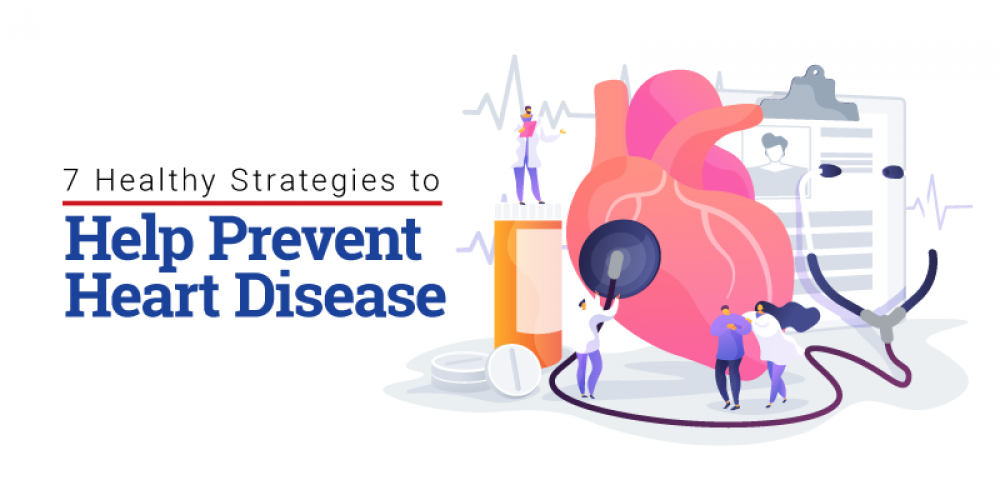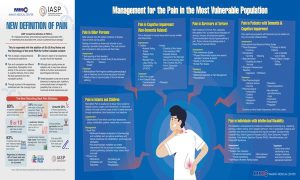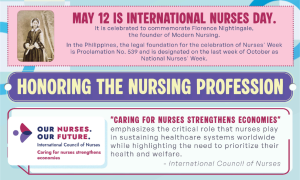It’s common knowledge that the heart is one of the vital organs essential for survival, so it’s crucial to give it the utmost care. Unfortunately, many still contract heart disease, particularly ischemic heart disease, which is the narrowing of the arteries that can ultimately lead to a heart attack. According to the World Health Organization (WHO), this type of cardiovascular disease has been one of the top causes of death worldwide over the last 15 years.
Knowing the answers to questions like what causes heart disease, what treatments are available, and what healthy habits can help avoid such conditions is essential in preventing one of the so-called deadliest killers from afflicting you or your loved ones.
Learn about heart disease and more in the infographic posted below:
Treatments for Heart Diseases
There are two primary ways of treating heart disease: medication and surgery.
-
Medication
- Statins – Use these to reduce bad cholesterol (also known as low-density lipoprotein or LDL) and increase good cholesterol (also known as high-density lipoprotein or HDL).
- Blood thinners – Their purpose is to reduce the risk of blood clots that may reach the heart, lungs, or brain.
- Beta-blockers – These drugs help the heart rest as they lower the heart rate, lessen the force of the heartbeat, and reduce blood pressure.
- Angiotensin-converting enzyme (ACE) inhibitors – These medications help relax the blood vessels and reduce the impact of heart failure.
-
Surgery
- Coronary artery bypass – To allow blood to flow and steer clear of blocked arteries, the blood vessels are re-routed. This procedure is vital in supplying oxygen to the heart while avoiding damaged or blocked blood vessels.
- Angioplasty – This surgery involves inserting a balloon catheter to expand narrowed blood vessels that are restricting the flow of blood to the heart.
- Valve repair or replacement – A mechanical valve may be used or one may be developed from living tissue to fix a dysfunctional heart valve.
Heart Disease Prevention
These key factors can help keep the heart healthy and strong:
1. Healthy diet
Poor diet is associated with almost half of deaths related to cardiovascular or heart disease, according to the Journal of the American Medical Association.
To protect your heart, your diet should be composed of meals with less sodium, sugar, and certain kinds of fat. Both saturated fat (found in both red and processed meat, and full-fat dairy products) and trans fat (found in fried fast food, baked goods, and chips) tend to raise cholesterol levels, which may put you at risk for developing heart disease or stroke.
2. Physical activity
3. Quality sleep
4. Stop smoking
5. Weight control
6. Stress management
7. Heart screening
- Blood pressure (BP). Starting at age 18, you should have your blood pressure measured every two years, but once you reach your 40s, annual blood pressure testing is recommended to determine whether your BP is higher than average.
- Cholesterol. Screening for cholesterol levels is needed by the time you turn 20 years old and should be repeated at least every five years. However, your doctor may recommend screening on a more frequent basis if there is a history of heart disease in the family.
- Diabetes. Type 2 diabetes screening starts at age 45, even if your weight is normal and you do not exhibit risk factors, such as family history. Otherwise, you need to get yourself screened as early as possible.
Take Good Care of Your Heart
Heart disease is a leading cause of death globally, but there are things you can do on your own or with the help of your doctor to prevent it. By taking good care of your heart, you can live a longer and healthier life that you can spend with your family and loved ones.
Learn more about heart ailments and proper medical treatment from your doctor at MakatiMed Cardiac Care Center.









